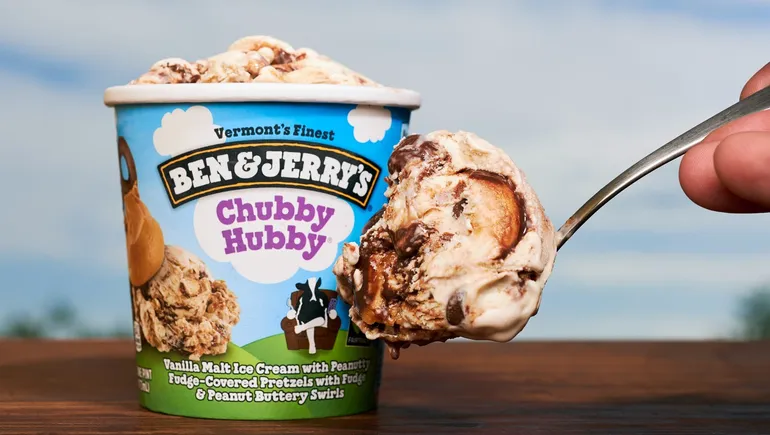Unilever to cut 7,500 jobs and spin off ice cream business

Dive Brief:
- Unilever plans to spin off its ice cream business as part of a sweeping restructuring plan designed to create “a simpler, more focused company.”
- The Ben & Jerry’s manufacturer said ice cream has “distinct characteristics” compared to other parts of its business, including its presence in frozen, more seasonality and a greater capital intensity. As a standalone entity, the management team will have the flexibility to grow ice cream and allocate capital and resources in a business with a specific strategy.
- The consumer goods company also announced it would cut about 7,500 jobs as part of the restructuring effort designed to increase sales, cut costs and boost productivity. Unilever currently employs about 128,000 people.
Dive Insight:
CEO Hein Schumacher took the helm of Unilever last July and has wasted little time making his mark on the sprawling conglomerate.
Unilever, which makes everything from Hellmann’s mayonnaise and Magnum ice cream bars to Dove soap and Axe deodorant, said it would benefit by running a focused portfolio of strong brands in highly attractive categories.
“Simplifying our portfolio and driving greater productivity will allow us to further unlock the potential of this business, supporting our ambition to position Unilever as a world-leading consumer goods company delivering strong, sustainable growth and enhanced profitability,” Schumacher said in a statement.
Once the restructuring is complete, Unilever will be left with four business segments: beauty and wellbeing, personal care, home care and nutrition.
Unilever said its ice cream division, which makes Good Humor, Talenti, Breyers, Popsicle and Klondike, would most likely be listed as a separate entity, though it could also opt to sell the business.
Unilever has sold ice cream since 1922. The division, which generated 7.9 billion euros ($8.6 billion) in revenue in 2023, was responsible for about 13% of Unilever’s 59.6 billion euros ($64.7 billion) in total revenue last year. The division had five of the top 10 selling global ice cream brands in terms of sales, the company said.
Still, despite its prominent position, ice cream was the slowest growing division for Unilever in 2023, with sales rising 2.3%. In contrast, personal care jumped 8.9%, beauty and wellbeing surged 8.3% and nutrition climbed 7.7%.
The separation of ice cream also would help Unilever distance itself from Ben & Jerry’s, a brand known for its social activism platform that often has led to tension with its corporate parent. In 2022, the brand known for quirky flavors like Cherry Garcia and Chunky Monkey sued Unilever after it divested its business in Israel without its consultation.
Unilever said the job cuts will predominately affect office-based roles. The company also plans to invest more in technology to reduce complexity and duplication across its business.
The overhaul comes two years after Unilever instituted a massive restructuring, laying off thousands of managers worldwide and restructuring its business around its five distinct product groups.
Unilever hasn’t been shy about selling business, including the divestiture of Lipton and several other tea brands to a private equity firm for $5 billion in 2021. Last year, it sold grooming products brand Dollar Shave Club to another private equity firm.
In recent years, Unilever has drawn criticism from activist investors urging the company to make meaningful changes to its wide-reaching and oftentimes volatile business. Nelson Peltz joined the company’s board in 2022, noting at the time Unilever had “significant potential.”
Source: fooddive.com

